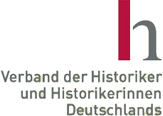


- Vortragstitel:
- The German Triangle. Entrepreneurial Networks in 19th Century Midwestern United States
- Tag:
- 29.09.2010
- Epoche:
- Neuere/Neueste Geschichte
- Sektion:
- Immigrant Entrepreneurship. The German-American Experience in the 19th and 20th Century
Abstract:
The German Triangle. Entrepreneurial Networks in 19th Century Midwestern United States
Referent/in: Giles Hoyt, Indianapolis
Abstract
The geographic area of interest in this presentation is the Mid West, primarily the Midwestern core, Indiana, Illinois and Ohio, including the major cities Indianapolis, Chicago and Cincinnati. This concentration is by necessity given the expanse of the area and the dearth of research Germans of the first and second generations found open economic markets in the Midwest. Germans arrived in large numbers just when the Northwest frontier was opening for economic development. Entrepreneurs arrived at all times, although most commonly came in the 1840’s and 50’s, somewhat towards the end of early economic development. Earlier immigrants tended to be farmers, craftspeople and the like. We are using the word networks and networking very judiciously in this presentation. The word “networking” was not used to mean a group of linked people until after WWII. Still, since we are looking retrospectively from our time, the word is useful to understand that linking of individuals and groups did indeed take place, which, of course, is a necessary requirement for business. We will see at various levels of economic activity a variety of alliances, partnerships and mergers, all terms au courant with 19th-century business. By examining a number of such phenomena, we can observe considerable diversity in the networks formed. This includes shopkeepers as well as magnates with considerable capital at their disposal. Primary sources provide insight in how the networks were formed. Examples include letters from the Gutknecht-Feil family of entrepreneurial small business people, documents and contemporary articles about the Vonnegut hardware dynasty and its business and familial relationships with the large Lieber brewing and Schnull wholesale businesses; all from Indianapolis. But very instructive is the development of alliances and partnerships with Yankee and other ethnic partners. Essentially business followed capital in the end analysis, not ethnic lines. Business was conducted in the German language, and German-language newspapers, one of our primary sources, show that to be the case. Nonetheless, German-American businesses, except on a very micro scale, had an American orientation and interest in being part of the general economy. At a certain level there is only American business.





